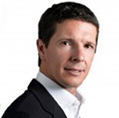CSL and Cochlear are two stocks in the healthcare sector that I consider to be extraordinary businesses – both companies produce technically-superior products in their respective fields, which have provided them with strong reputations, pricing power, fortress-like balance sheets and bright long-term growth prospects.
Fill your portfolio with these characteristics and over the long run, you cannot help but beat the market.
Cochlear and CSL are two companies we have no hesitation in accumulating when their share prices dip below their intrinsic values but such opportunities are rare as companies of this quality do not come cheap very often. In saying that, there is another health care company that we believe could be mentioned in the same breath as Cochlear and CSL – and that is Resmed.

Healthcare at the right price
Resmed is a designer, manufacturer and distributor of flow generators, masks and accessories for sufferers of Obstructed Sleep Apnea (OSA) – a condition causing the airways to temporarily close while sleeping (apnea means “without breath”). OSA is increasingly being linked to very serious health problems, such as heart disease, stroke and diabetes in addition to the frustration experienced by sufferers’ partners who have their own sleep disrupted by snoring – a common symptom of OSA.
Early treatments of the condition involved surgery, though for obvious reasons this was only prescribed as a last resort. Today, flow generators can effectively maintain the airway pressure of patients in the comfort of their own home. As flow generators alone can retail for thousands of dollars, the global sleep apnea market has become very lucrative – and also very competitive!
Resmed’s main competitor is Respironics, which was acquired by Philips in 2008. Respironics is synonymous with sleep apnea products in the United States due to its ‘first mover’ status. Despite this, Resmed has been gaining market share by not only producing superior products, but by also investing in an efficient supply chain, ensuring product is brought to market quickly. Resmed is able to distribute its products quickly and economically by basing the majority of its manufacturing facilities in Singapore, which has a low cost base, a favourable tax rate of less than 10% and obvious geographical advantages.
Research and development focus
Resmed invests heavily to ensure that its products are as comfortable as possible – this leads to greater patient compliance, which in turn leads to brand loyalty. The company spent $110 million, or 8% of sales, on research and development in 2012.
As a result of a strong product line and an efficient cost base, Resmed has maintained a gross margin of over 60% – this is astounding when compared to its peers. Philips has a gross margin of 38% on a firm-wide basis, while Cochlear and CSL have gross margins of 56% and 48% respectively. Even Apple, the revolutionary electronics producer, has a gross margin of 44%.
The major risk to Resmed’s growth prospects is reforms to the Medicare reimbursement system in the United States. The US health care system is very inefficient, with Medicare paying three to four times more than what pharmacies or retail stores charge for the same medical equipment. Given the state of the US budget, there has been a considerable push to rein in spending in the public sector, and these excess reimbursements present low-hanging fruit.
In the US Medicare has recently announced that reimbursement rates will be reduced by 47% for sleep apnea products. While Resmed has considerable bargaining power with distributors, the size of the cuts will have a significant impact on distributors’ margins, and it seems that Resmed will be forced to bear some of the pain. Ultimately though, Medicare reimbursements only account for around 20% of the flow generators markets in the US, and the cuts will not apply to the entire US population until 2016.
Despite these medium term risks, the prospects for the sleep apnea market is very attractive – globally, 100 million people are thought to have some form of sleep apnea, with 80% estimated to be undiagnosed. Resmed’s extraordinary fundamentals should continue to extract value for shareholders from this growing market for a long time to come. Investors who are patient and are able to accumulate shares well below estimated intrinsic value should, over the very long term, be able to rest as easily as the company’s patients.
Important: This content has been prepared without taking account of the objectives, financial situation or needs of any particular individual. It does not constitute formal advice. Consider the appropriateness of the information in regards to your circumstances.
Also in the Switzer Super Report
- Penny Pryor: Top 20 regional areas – coastal areas shine
- James Dunn: Seven tips for buying an investment property
- Jo Heighway: Five mistakes to avoid when buying property in your SMSF
- JP Goldman: Is North Korea bluffing and what does it mean for markets?
- Paul Rickard: Suncorp brings new hybrid to market
- Andey Gracey: Fundie’s favourite – Australian Ethical on Alchemia
- Lance Lai: Chart of the week – Gold
- Subscriber feedback: Reader reaction of the week

